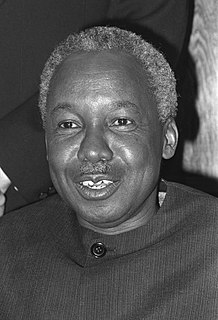A Quote by Ruth Benedict
Society in its full sense ... is never an entity separable from the individuals who compose it. No individual can arrive even at the threshold of his potentialities without a culture in which he participates. Conversely, no civilization has in it any element which in the last analysis is not the contribution of an individual.
Related Quotes
Where these reduced (operational - E.W.) concepts govern the analysis of the human reality, individual or social, mental or material, they arrive at a false concreteness - a concreteness isolated from the conditions which constitute its reality. In this context, the operational treatment of the concept assumes a political function. The individual and his behavior are analyzed in a therapeutic sense - adjustment to his society. Thought and expression, theory and practice are to be brought in line with the facts of his existence without leaving room for the conceptual critique of these facts.
Because all the societies, all the nations, all the cultures, have taken it for granted that the individuals exist for them, not vice-versa. To me, just the opposite is the case: the society exists for the individual, the culture exists for the individual, the nation exists for the individual. Everything can be sacrificed, but the individual cannot be sacrificed for anything. Individuality is the very flowering of existence - nothing is higher than it. But no culture, no society, no civilization is ready to accept a simple truth.
Each member of society can have only a small fraction of the knowledge possessed by all, and...each is therefore ignorant of most of the facts on which the working of society rests...civilization rests on the fact that we all benefit from knowledge which we do not possess. And one of the ways in which civilization helps us to overcome that limitation on the extent of individual knowledge is by conquering intelligence, not by the acquisition of more knowledge, but by the utilization of knowledge which is and which remains widely dispersed among individuals.
The integrative tendencies of the individual operate through the mechanisms of empathy, sympathy, projection, introjection, identification, worship- all of which make him feel that he is a part of some larger entity which transcends the boundaries of the individual self. This psychological urge to belong, to participate, to commune is as primary and real as its opposite. The all-important question is the nature of that higher entity of which the individual feels himself a part.
Having come into contact with a civilization which has over-emphasized the freedom of the individual, we are in fact faced with one of the big problems of Africa in the modern world. Our problem is just this: how to get the benefits of European society - benefits that have been brought about by an organization based upon the individual - and yet retain African's own structure of society in which the individual is a member of a kind of fellowship.
There is a very broad theory that society gets the right to hang, as the individual gets the right to defend himself. Suppose she does; there are certain principles which limit this right. Society has got the murderer within four walls; he never can do any more harm. Has society any need to take that man's life to protect itself? If any society has only the right that the individual has, she has no right to inflict the penalty of death, because she can effectually restrain the individual from ever again committing his offence.
But the individual was not a tool for something. He was the maker of tools. He was the one who must build. Even for the best purpose it is criminal to turn an individual into simply a means for some ultimate end. A society in which the dignity of the individual is destroyed cannot hope to be a decent society.
Freud made the discovery- quite genuinely, simply through working on his own material- that the more deeply one explores the phenomena of human individuation, the more unreservedly one grasps the individual as a self-contained and dynamic entity, the closer one draws to that in the individual which is really no longer individual.
Sooner or later a democracy which is to survive has to be able to rely upon that enlargement of vision and purpose of those individuals who compose it, which means that their craving for devotion and self-sacrifice is satisfied in a democratic society on a nobler level, and with a finer recognition of the value of individual personality than is true of a national purpose of a totalitarian state under a dictator.
The strength of an individual is not in his extreme freedom and libertine lifestyle, but in the stalwartness of his character and his moral vigor. The society is made of individuals. What is true for an individual is also true for the society. A society that is not founded on moral values is doomed to fall.
Human life in common is only made possible when a majority comes together which is stronger than any separate individual and which remains united against all separate individuals. The power of this community is then set up as right in opposition to the power of the individual, which is condemned as brute force.
There are crimes which no one would commit as an individual which he willingly and bravely commits when acting in the name of his society, because he has been (too easily) convinced that evil is entirely different when it is done 'for the common good.'...one might point to the way in which racial hatreds and even persecution are admitted by people who consider themselves, and perhaps in some sense are, kind, tolerant, civilized and even humane.
It is possible that an individual may be successful, largely because he conserves all his powers for individual achievement and does not put any of his energy into the training which will give him the ability to act with others. The individual acts promptly, and we are dazzled by his success while only dimly conscious of the inadequacy of his code.




































